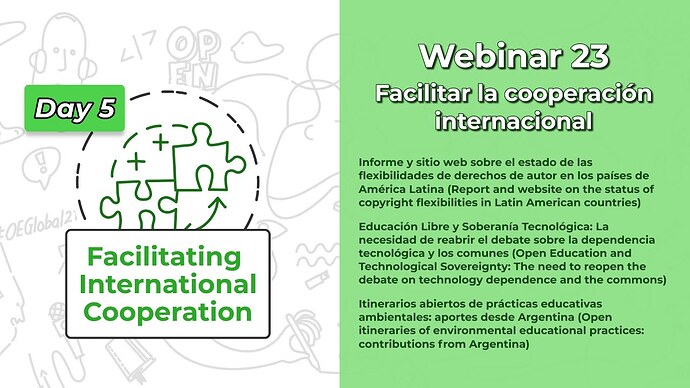Patricia Diaz (Laboratorio de Datos y Sociedad (Datysoc)), Carolina Botero Cabrera (Fundación Karisma)
Exceptions and limitations to copyright are necessary to promote education, culture and research in the digital age, they provide guarantees to people and institutions that make honest and socially accepted uses of knowledge.
For years, the organizations and experts that work at the intersection between human rights and technologies have detected an important regulatory backwardness in the copyright laws of Latin America.
Aligned with the UNESCO OER Recommendation (V lit. g), the recently formed SCiLAC Group (Latin American and Caribbean Civil Society) has begun to generate materials and evidence for advocacy in the Standing Committee on Copyright and Related Rights (SCCR) of the WIPO.
As part of these actions, we have published the "Report on Copyright Flexibilities in Latin America" and created an interactive map that provides a visual overview of the state of the situation of copyright flexibilities to facilitate understanding of the report.
We will present the operation of the website, as well as its importance as an international consultation and advocacy tool.
Extended abstract: OE_Global_2021_paper_41.pdf 📄
Webinar Information
This presentation is part of Webinar 23 Facilitar la cooperación internacional taking place in your local time → .
Webinar Access (registered conference participants only):
![]()
![]() Go to Webinar 23
Go to Webinar 23
UNESCO OER Action Area: Facilitating international cooperation
Language: SpanishSee the other presentations that take place in this webinar.
Presentation Recording
Participate
Before the webinar the authors will be asked to reply below with links to their presentation materials, related videos, and other relevant links, as well as prompts for discussion here.
For anyone that missed the live session, an archive will be posted here as soon as possible.
Conference participants are urged also to reply below with questions, comments for the presenters or to share related resources.
